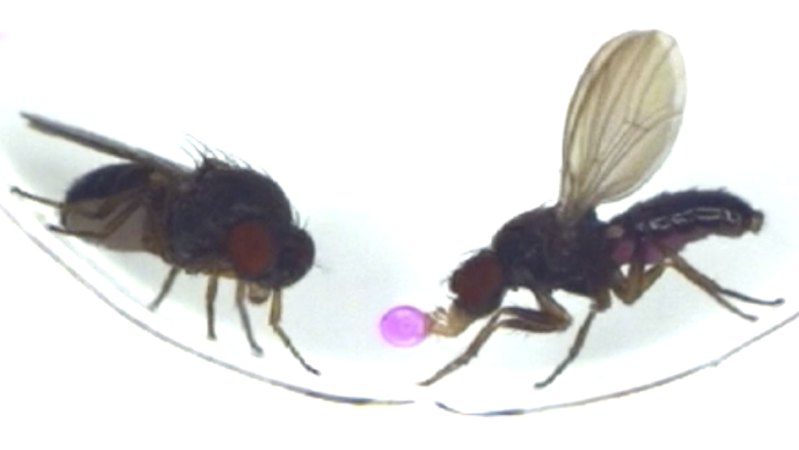Research conducted at the University of California, Berkeley has uncovered a fascinating connection between a specific protein and an unusual behavior in male fruit flies. This protein, produced in neurons related to digestion, appears to induce a vomiting response in these flies, particularly when they are in the throes of attraction.
The study focused on the species Drosophila melanogaster, commonly known as the fruit fly. Scientists found that when these male flies encounter potential mates, they exhibit a unique “romantic” barfing behavior. This behavior not only serves to attract females but also plays a role in the reproductive process.
By analyzing the genetic makeup of these flies, researchers identified a male-specific protein that is activated in the gut neurons. This protein seems to stimulate the release of digestive fluids, which the male flies then regurgitate during courtship rituals. The act of “vomiting” during mating displays might seem peculiar, but it highlights a complex evolutionary strategy aimed at enhancing reproductive success.
Understanding the Mechanism Behind the Behavior
The research team utilized advanced imaging techniques to observe the neurons responsible for this behavior. The activation of these specific neurons led to the release of the protein, triggering the vomiting response. This discovery sheds light on how certain behaviors can evolve based on reproductive needs and environmental pressures.
The implications of this research extend beyond just fruit flies. Understanding the neurological pathways involved in such behaviors could provide insights into the evolution of mating rituals in other species. The findings suggest that the relationship between digestion and mating may be more intertwined than previously thought.
Lead researcher, Dr. David Anderson, stated, “This study reveals how a single protein can influence behavior in a way that seems absurd but is fundamentally rooted in evolutionary biology.” The research was published in a prestigious journal in 2023, further emphasizing its significance in the field of ethology.
Potential Applications and Future Research
The study not only opens up new avenues for understanding fly behavior but also raises questions about the broader implications for other organisms. By identifying the specific genetic components that influence such behaviors, scientists can explore potential applications in pest control or even insights into human behaviors linked to attraction and digestion.
As researchers continue to uncover the complexities of animal behavior, this study serves as a reminder of the intricate connections between physiology, behavior, and evolution. The peculiar “romantic” barfing of male fruit flies may be just one example of how nature employs unexpected strategies to ensure the continuation of species.
In conclusion, the findings from the University of California, Berkeley provide a compelling look into the evolutionary quirks of fruit flies. As the study progresses, it promises to enhance our understanding of the biological mechanisms that underpin attraction and mating behaviors across species.








































































